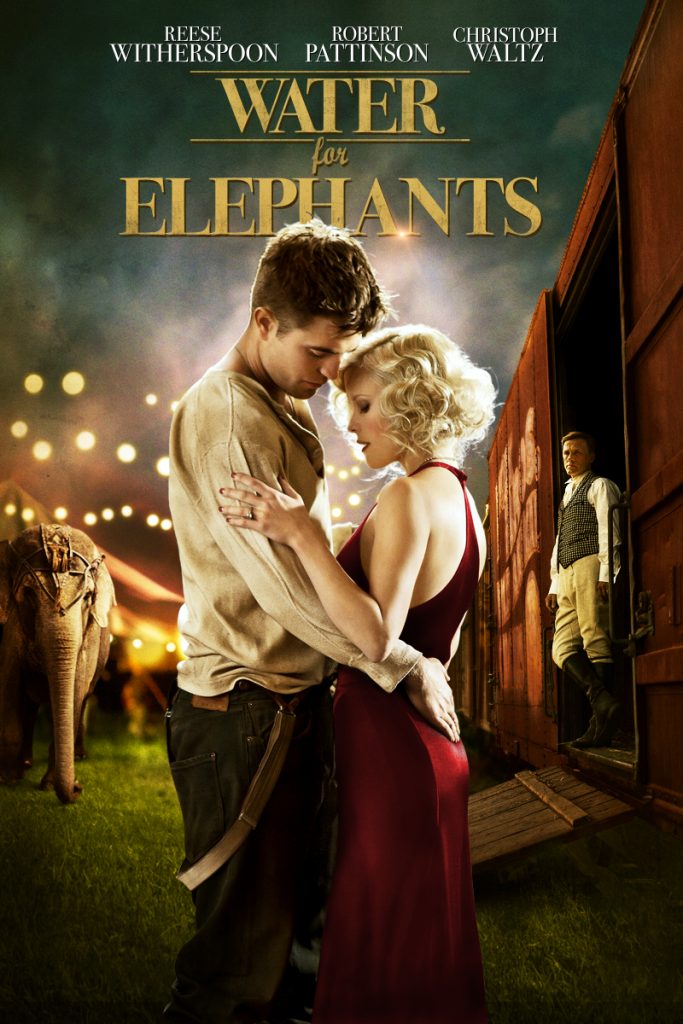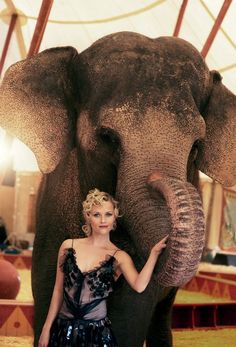Water for Elephants (Dir. Francis Lawrence, 2011), based on the novel of the same name, is a story about a young man Jacob (Robert Pattinson) who joins a travelling circus and is unsurprisingly about confinement and freedom. It’s brimming with animals from horses to lions to the star of the show, Rosie the elephant, all of which are kept confined throughout their experience with the circus; but they aren’t the only characters in the story that are trapped. The animals symbolise a wider theme of entrapment and even the human members of the circus are prevented from doing as they wish, despite the fact that the circus offers many of them the only form of freedom they can achieve in the Great Depression era. This ironic connection between confinement and freedom is extended throughout the film. August (Christoph Waltz) assures Jacob that the circus is a place free from the restrictions and laws of American society yet forces him to treat Rosie with violence and threatens to throw him from the train when he doesn’t do as he’s told. Similarly, August’s relationship with Marlena (Reese Witherspoon) is one which gives her the freedom to perform and live, yet she is bound to him by law (marriage) and his violent protection of her is suffocating as he refuses to allow her to leave the circus. Even the storyteller, the older Jacob, feels trapped in his care home and uses his memories of the circus to escape. The primary law that the characters of the film experience is Prohibition. Due to the restrictions on alcohol consumption of the period, the characters are seen drinking moonshine, an illegal and dangerous form of alcohol. Camel’s (Jim Norton) alcoholism is another form of enslavement depicted in the film, and being left with no choice but to drink the poisonous substance, he ends up paying the ultimate price: death. Thus, the story highlights the dangerous outcome of control.

Rosie embodies the irony that links entrapment and freedom. Like all the other animals she is trapped in the circus, bought as a commodity and treated as an object by August. She is often pictured staked to the ground, but from early on she shows Jacob that she is in control of her confinement, as she lifts the stake out of ground and carries it with her to a jug of lemonade, takes a gulp, and then carries her stake back to her original spot and places it into the soil. The importance of this scene is only truly realised in the final circus scene where Rosie saves Marlena, who is being suffocated, this time literally, by August, by lifting her stake out of the ground and using it to kill him. Not only does this scene show animal agency as Rosie reacts to her mistreatment by August and saves the loving Marlena, suggesting to the viewer that cruelty is never the answer, it also emphasises the danger that can come with confinement. By using her incarceration as a weapon Rosie represents the liberal idea that dictatorial control will lead to revolution.

Further Reading:
- Sara Gruen, Water for Elephants, (United States of America: Algonquin Books of Chapel Hill, 2006)